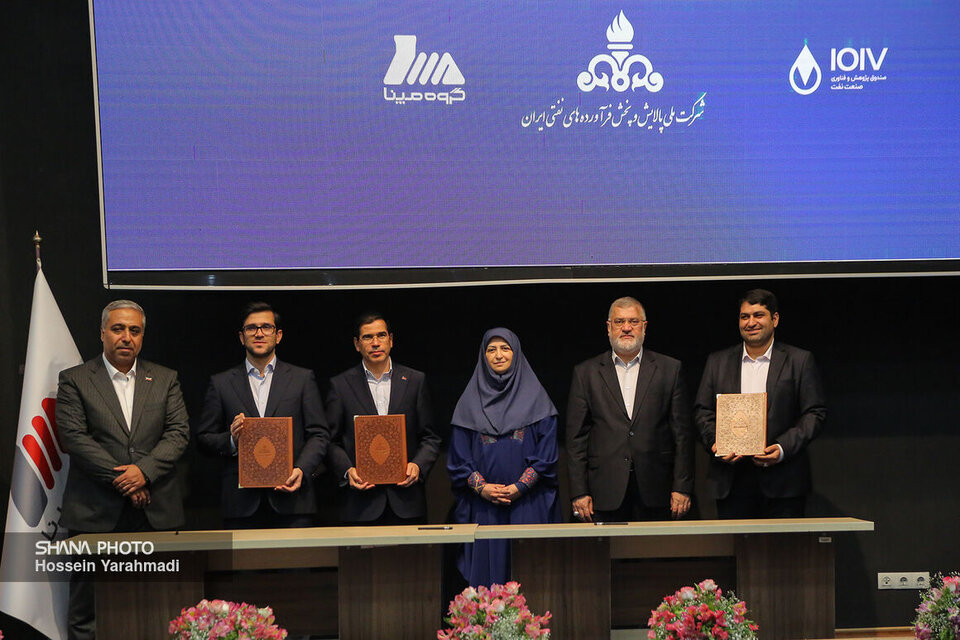Major cities worldwide face complex air pollution challenges, largely caused by aging motor vehicles. Restructuring energy consumption and transitioning to clean energy in urban fleets are practical, high-impact solutions to reduce pollution in metropolitan areas.
At this year’s International Oil, Gas, Refining, and Petrochemical Exhibition, NIORDC signed the agreement with executive bodies and urban logistics companies to replace gasoline motorcycles with electric models, aiming to cut emissions, lower fuel use, and advance clean transportation. As the representative of the Ministry of Petroleum, the company took concrete action to modernize Tehran’s fleet in collaboration with relevant agencies and private-sector stakeholders.
$300m annual cost of 400,000 outdated motorcycles in Tehran
Over 4 million motorcycles operate in Tehran, many of which are old and inefficient. A significant portion lack emissions inspections, exacerbating fuel consumption and air pollution.
Daily, more than 3 million liters of gasoline are burned by motorcycles, 90% of which are outdated and should be scrapped. Fuel consumption by motorcycles has risen 20% in the past year due to increasing demand amid heavy traffic congestion. Additionally, 400,000 commercial motorcycles in Tehran—90% of which are outdated—account for 10% of the city’s pollution, alongside $300 million in annual fuel subsidies and noise pollution.
Launching the national electric motorcycle fleet initiative
A key solution to this costly and inefficient cycle is replacing gasoline motorcycles with electric models. Accordingly, NIORDC has prioritized the National Electric Motorcycle Fleet Plan, based on policies such as the Clean Air Act, the Seventh Five-Year Development Plan, and approvals by the Economic Council.
Plan objectives
- Promote clean transportation and reduce air pollution in major Iranian cities.
- Cut fuel consumption by modernizing and electrifying fleets, focusing on postal services, police, and commercial motorcycles.
- Utilize approved financing mechanisms to expand clean transportation.
- Transform fuel supply and distribution by developing charging stations for electric motorcycles.
If implemented, this agreement will mark a major step toward modernizing outdated urban fleets and optimizing fuel management in Tehran and other large cities.
Commitments by parties
Under the agreement:
- Iran’s National Post Company will provide 1,200 electric motorcycles.
- Traffic Police will supply 300.
- The Oil Industry Research & Technology Fund and Zero Company will contribute 1,000 in Tehran.
- Digikala’s logistics fleet will add 7,500.
- Golrang Group’s courier fleet will provide 10,000.
Investors
Investors include banks, financial institutions, private companies, and urban logistics platforms, operating on a mutually beneficial, opportunity-driven model.
The agreement was signed on the sidelines of the 29th International Oil, Gas, Refining, and Petrochemical Exhibition by:
- Mohammad Sadegh Azimi-Far, CEO of NIORDC
- Sedigheh Torabi, Deputy for Human Environment at Iran’s Department of Environment
- Mohammad Sadegh Motamedian, Governor of Tehran
- Mohsen Hormozi, Deputy for Transportation and Traffic at Tehran Municipality
- Farshad Moghimi, CEO of Iran’s Industrial Development & Renovation Organization
- Mohammad Ahmadi, CEO of Iran’s National Post Company
- Mohammad Hassan Ebrahimipour, Technical & Engineering Deputy of Traffic Police
Impact
The National Electric Motorcycle Fleet Plan will not only reduce environmental harm and improve public health but also make urban logistics more dynamic, efficient, and cost-effective. By fostering shared value among diverse stakeholders, the initiative will optimize fuel consumption and enhance national infrastructure.


Your Comment